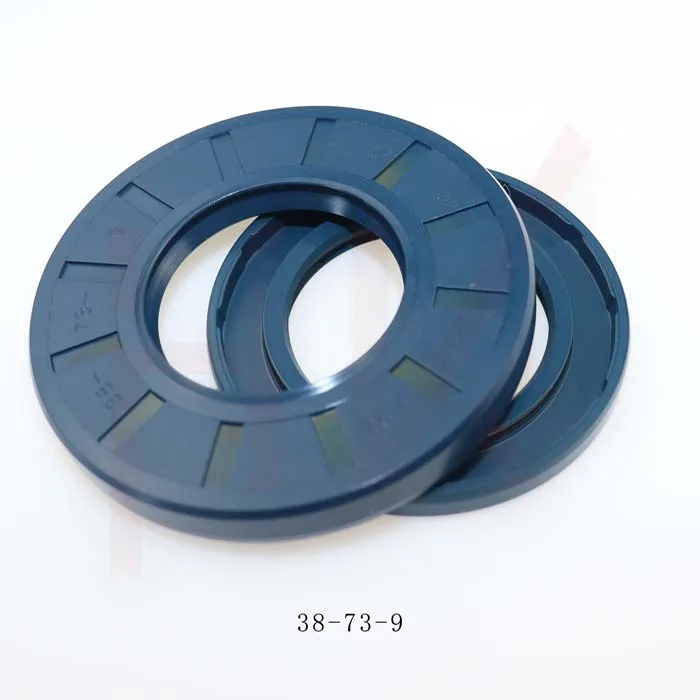Dec . 05, 2024 15:58 Back to list
Hydraulic Cylinder Oil Seal Pricing and Options for Your Hydraulic Needs
Understanding the Pricing Factors of Hydraulic Cylinder Oil Seals
Hydraulic systems are integral to various industrial applications, and the hydraulic cylinder oil seal is a crucial component within these systems. This seal ensures that the hydraulic fluid remains contained, preventing leaks and maintaining the system's efficiency. With the importance of this component in mind, pricing becomes a significant aspect for industries relying on hydraulic systems. In this article, we will explore the key factors that influence the price of hydraulic cylinder oil seals.
Material Composition
One of the primary determinants of the price of hydraulic cylinder oil seals is the material from which they are made. Hydraulics often operate under high pressure and temperature, requiring seals that can withstand these conditions. Common materials used include Nitrile Rubber (NBR), Polyurethane (PU), and Fluoroelastomer (FKM). The cost of raw materials can fluctuate, impacting the overall price of the seals. For instance, seals made from high-grade FKM tend to be more expensive due to their superior temperature and chemical resistance compared to those made from NBR.
Size and Dimensions
The specific size and dimensions of the oil seal also greatly affect its price. Hydraulic cylinders come in various sizes, and seals must be tailored to ensure a precise fit. Custom-sized seals often involve additional manufacturing processes, leading to increased costs. Standard sizes may be more economical due to mass production capabilities, while custom solutions reflect a premium price for specialized applications.
Manufacturing Process
hydraulic cylinder oil seal price

The method of manufacturing can vary from one supplier to another, and this can also impact pricing. Processes like molding, extrusion, and machining each have different cost implications. For example, seals produced via advanced techniques such as automated molding may be more cost-effective in large quantities but could be pricier for smaller orders due to setup costs. Quality control measures, testing, and certification processes further influence production costs, which naturally translates to higher prices for the end user.
Market Demand and Supply Chain
The dynamics of supply and demand in the market can significantly impact oil seal prices. During periods of high demand—such as when certain industries ramp up production—prices may rise due to limited availability. Conversely, during economic downturns or reduced industrial activity, prices may drop as manufacturers seek to offload excess inventory. Global supply chain issues, such as shipping delays or material shortages, can also lead to price fluctuations. Companies must navigate this landscape to secure competitive pricing for hydraulic cylinder oil seals.
Brand and Quality Factors
Brand reputation and perceived quality are additional factors that can influence pricing. Well-established brands often command higher prices due to their track record of reliability and performance. Many industries prioritize quality and may opt for higher-priced seals to mitigate the risk of failure, which could result in costly downtime. Conversely, emerging brands or lesser-known manufacturers might offer competitive pricing to penetrate the market, but potential buyers must weigh the risks associated with lesser-known products.
Conclusion
In summary, the price of hydraulic cylinder oil seals is influenced by a myriad of factors including material composition, size, manufacturing processes, market dynamics, and brand reputation. For industries that operate hydraulic systems, understanding these elements is vital for making informed purchasing decisions. As the demand for hydraulic components continues to evolve, staying abreast of market trends and pricing strategies will ensure that businesses can maintain efficiency and cost-effectiveness in their operations. Whether you are choosing a standard seal or considering a custom solution, being mindful of the factors outlined will help you navigate the complexities of the hydraulic seal market effectively.
-
TCN Oil Seal Metal Ring Reinforcement for Heavy Machinery
NewsJul.25,2025
-
Rotary Lip Seal Spring-Loaded Design for High-Speed Applications
NewsJul.25,2025
-
Hydraulic Cylinder Seals Polyurethane Material for High-Impact Jobs
NewsJul.25,2025
-
High Pressure Oil Seal Polyurethane Coating Wear Resistance
NewsJul.25,2025
-
Dust Proof Seal Double Lip Design for Construction Equipment
NewsJul.25,2025
-
Hub Seal Polyurethane Wear Resistance in Agricultural Vehicles
NewsJul.25,2025
-
The Trans-formative Journey of Wheel Hub Oil Seals
NewsJun.06,2025
Products categories
















